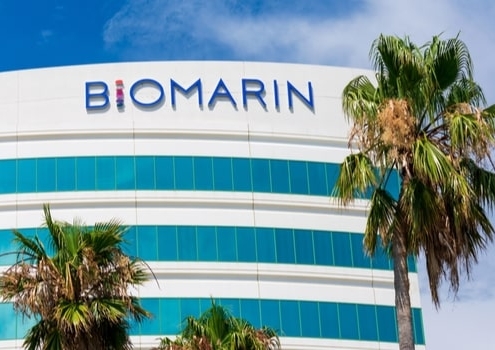BioMarin PKU Study Still On Hold After FDA Requests More Data
BioMarin PKU Study Still On Hold After FDA Requests More Data
BioMarin updated several of its gene therapy programs on Thursday. This follows a September 2021 update, when the company reported the U.S. Food and Drug Administration had slapped a clinical hold on its BMN 307 Phearless Phase I/II trial.
The therapy is an AAV5-phenylalanine hydroxylase (PAH) gene therapy in adults with phenylketonuria (PKU). The hold was based on interim safety data from a preclinical, non-GLP pharmacology study that identified liver tumors in lab animals on the therapy.
Biomarin indicated that the FDA had requested more data from non-clinical studies to evaluate the theoretical cancer risk to human trial participants. This is likely to take several quarters.
“As leaders in the development of gene therapies, a novel treatment modality, it is our responsibility to answer new questions that arise for the benefit of patients, physicians, regulatory bodies, and for the field in general,” said Dr. Hank Fuchs, president of worldwide research and development at BioMarin. “Patient safety is our utmost priority.”
Dr. Fuchs went on to say, “With new technologies in healthcare, we anticipate that both health authorities and developers will seek to characterize and evaluate potential safety-related signals to enable a more comprehensive assessment of these potential risks to patients. We remain grateful to all of the participants and investigators in our gene therapy studies, as well as for the support from patient advocacy groups.”
BioMarin also stated that it had completed enrollment in the ongoing Phase III Study 270-303 of valoctocogene roxaparvovec. This is another AAV5 gene therapy combined with prophylactic corticosteroids in individuals with severe hemophilia A. Data from the 52-week analysis is expected in the first half of 2023.
In addition, the company has several studies ongoing for hemophilia A, some of which are moving forward, while others continue to enroll patients. These include the Phase III GENER8-1 and the ongoing Phase I/II dose escalation study. It is also conducting a Phase I/II trial with the 6e13 kg/vg dose of valoctocogene roxaparvovec in about 10 people with pre-existing AAV5 antibodies and another Phase I/II trial with 6e13 vg/kg dose of valoctocogene roxaparvovec in patients with both hemophilia A and active or prior FVIII inhibitors.
BioMarin also stated that its Phase I/II HAERMONY trial of BMN 331 for hereditary angioedema (HAE) is open for enrollment. It is an AAV5-mediated gene therapy, which received Orphan Disease Designation from the FDA.
On Feb. 9, BioMarin announced it had sold its Rare Pediatric Disease Priority Review Voucher (PRV) for $110 million. The acquirer was unnamed. The company picked up the voucher in November 2021 under an FDA program when the agency approved Voxzogo (vasoritide) in pediatric patients with achondroplasia five year and older with open growth plates (epiphyses).
The PRV program is designed to encourage development of new therapies to prevent or treat certain rare pediatric diseases. A PRV allows the company that receives it to get priority review of a New Drug Application or Biologics License Application, which cuts the typical review time from 10 months to six months. The company can also sell the voucher to other companies who can use it for expedited review.
This was the third PRV BioMarin received. It received the prior two when the FDA approved Brineura (cerliponase alfa) and Vimizim (elosulfase alfa).
“We are pleased to announce the sale of the PRV and plan to direct the proceeds from this voucher sale towards additional investment in an already robust pipeline of investigational therapies for people with genetic diseases,” said Jean-Jacques Bienaime, chief executive officer of BioMarin. “We are proud to be able to participate in this program and that this voucher will be accelerating the availability of a therapy for patients.”
BioSpace source:
https://www.biospace.com/article/biomarin-s-pku-gene-therapy-study-still-on-hold-




